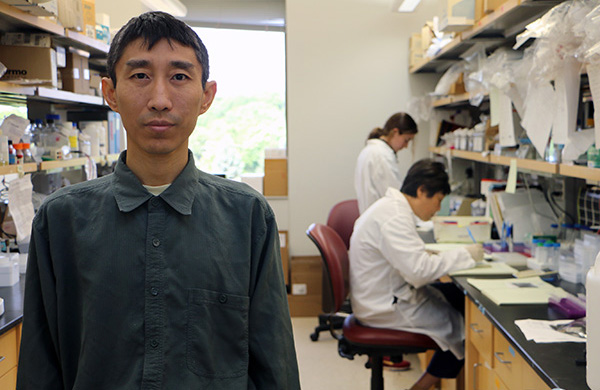The lab of Waisman Center director, Qiang Chang, PhD, professor of medical genetics and neurology, has received $1 million in funding from the Department of Defense to study the dysfunction of astrocytes, a key brain cell that supports neurons, in Rett syndrome.
Rett syndrome (RTT) is a debilitating neurological condition characterized by a regression in motor, cognitive, and language skills after an initial period of typical development. Its complexity is in part due to the involvement of all key brain cell types in the cause of the disease, including neurons, astrocytes, and other glial cells. With these funds, Chang’s lab will study how calcium dysregulation in astrocytes contributes to symptoms in RTT.
Chang’s lab recently discovered an imbalance of calcium levels inside astrocytes in both human stem cell models and mouse models of RTT. Calcium is important for proper function of the cells. They found that the cellular machinery responsible for maintaining the right balance of calcium inside of the cells is out of order. The newly funded research will take a deeper dive into this. “With this new study, we will further assess the functional significance of disrupted calcium homeostasis in RTT astrocytes,” Chang says.
The new research will seek to understand how calcium imbalance arises in astrocytes, and how it is connected to problems in nerve cells that ultimately result in RTT symptoms and progression. Through these findings, they hope to advance the understanding on how different brain cell types interact in RTT pathophysiology, and facilitate the development of treatments for the disease.
Read Original Article
PHOTO: Rup Chakravorty, Waisman Communications











